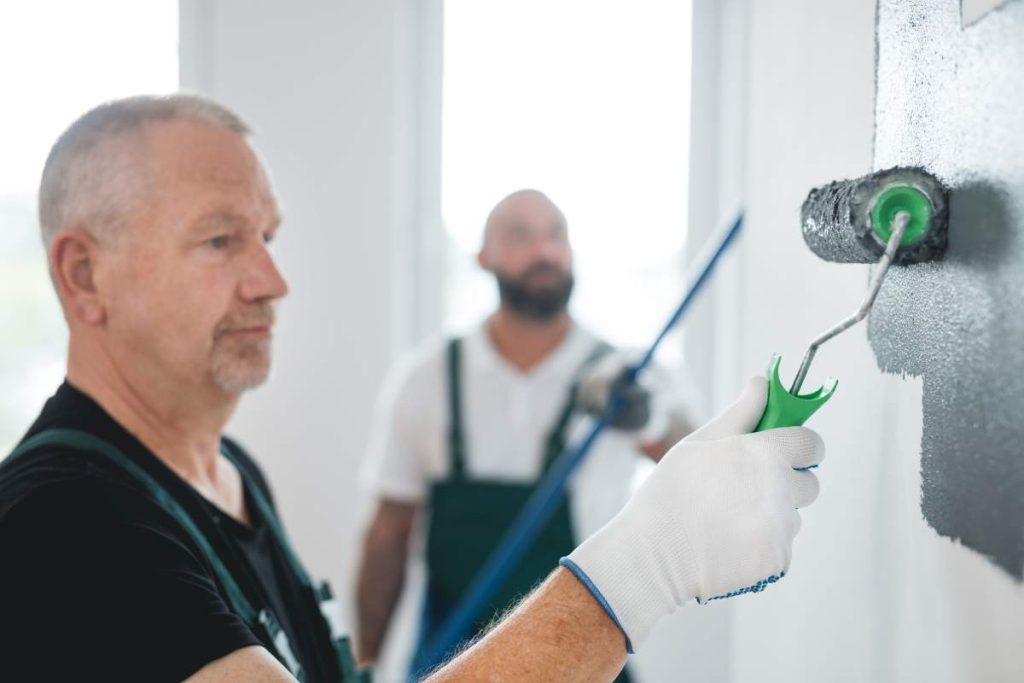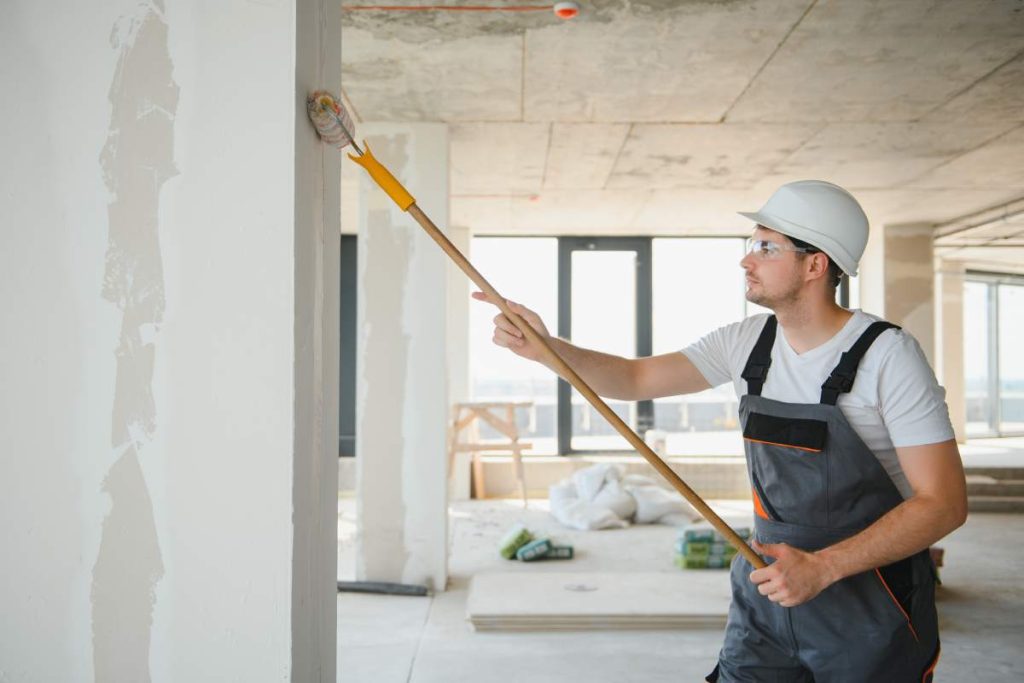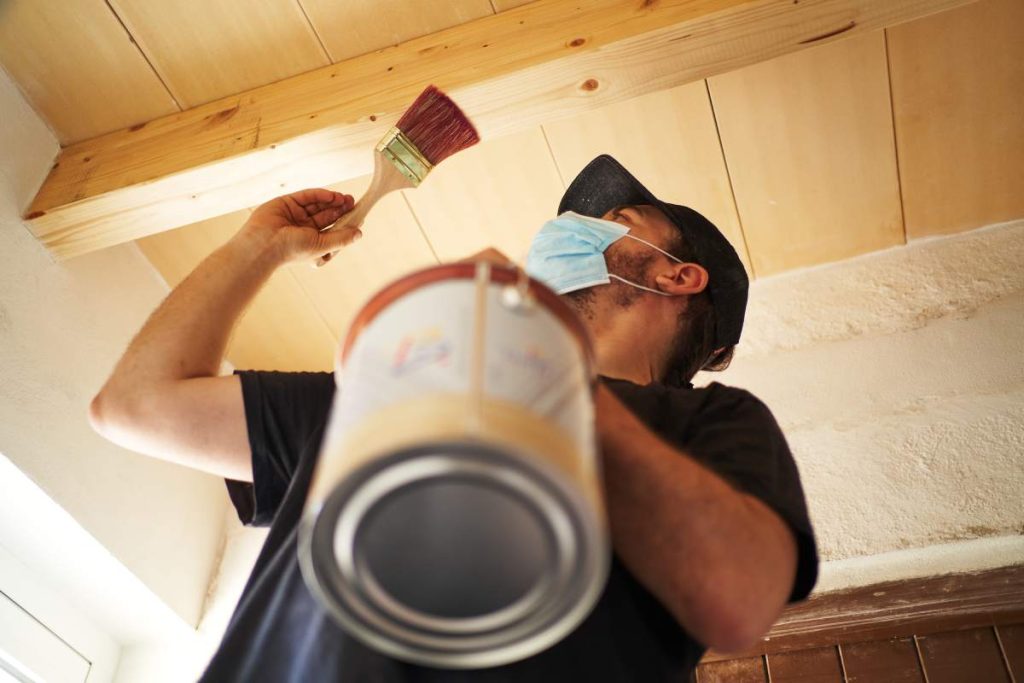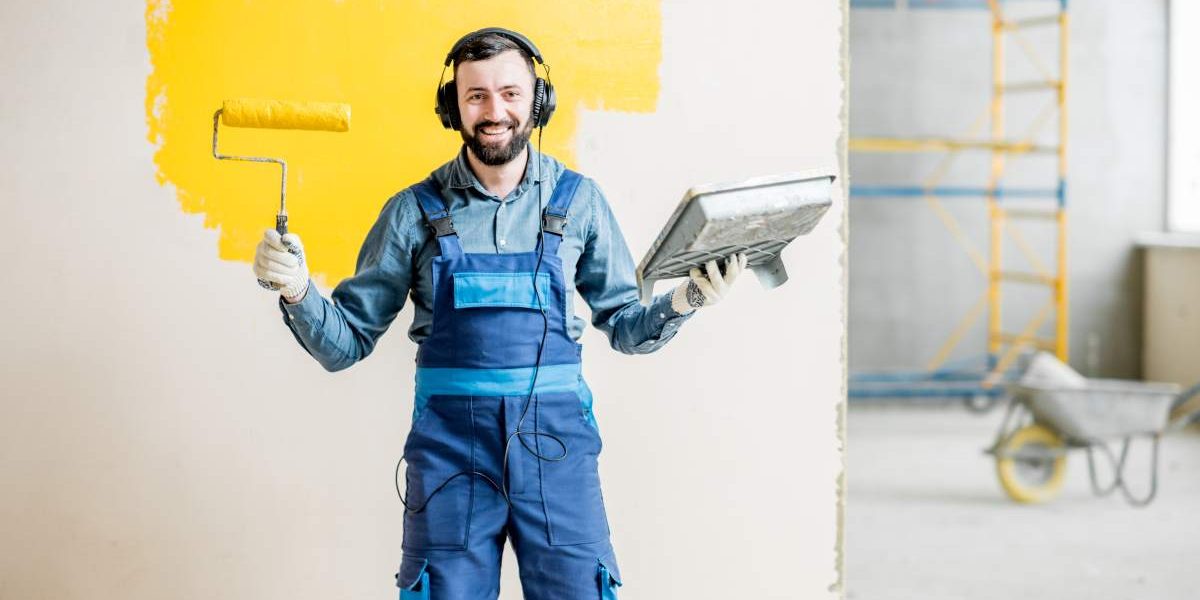Hiring a professional painting contractor can transform your space, adding new life to your home or office. Whether it’s for a residential property, a commercial space, or a large industrial project, the right contractor will ensure the job is done correctly, efficiently, and with a high level of craftsmanship. But with so many contractors available, how do you know you’re hiring the right one for the job?
Here’s a comprehensive guide on what to look for when hiring a professional painting contractor to ensure that you get the best value and quality for your money.
More Home Improvement Tips:
1. Experience and Expertise
One of the most important factors to consider when hiring a painting contractor is their experience. A well-established contractor with years of experience is likely to have a portfolio of successful projects and the skills to handle any challenges that may arise during the job.
How to Evaluate Experience:
- Ask how long they have been in business. A contractor with at least 5-10 years of experience is often a good sign.
- Look for expertise specific to your project type. Residential, commercial, and industrial painting each require unique skill sets.
- Ask for examples of their previous work. Request before-and-after photos or visit past projects if possible.
- Inquire about their knowledge of materials, finishes, and techniques. An experienced contractor should be able to recommend the best paints and finishes for different surfaces.

2. Licensing and Insurance
Ensuring that your painting contractor is properly licensed and insured is essential to protecting both you and the workers on your property.
Why Licensing and Insurance Matter:
- Licensing: A licensed contractor indicates they meet the local or state requirements for running a legitimate business. Make sure the contractor has a current license relevant to the scope of the painting work.
- Insurance: Accidents can happen, and you don’t want to be liable for injuries or damages on your property. Verify that the contractor has both liability insurance (to cover damages) and workers’ compensation insurance (to protect workers on the job).
3. Positive Reviews and Testimonials
Online reviews, word of mouth, and testimonials are valuable resources when evaluating a painting contractor. A well-reputed contractor will likely have a trail of satisfied customers.
How to Check Reviews:
- Look for reviews on platforms like Google, Yelp, or specialized contractor review sites like Angie’s List or Houzz.
- Read both positive and negative reviews. How does the contractor respond to criticism? Are issues resolved professionally?
- Ask for references and reach out to past clients to inquire about their overall experience, the contractor’s reliability, and the quality of the work.
4. Detailed Written Estimate
A reputable painting contractor should provide a detailed written estimate outlining the scope of the work, the materials needed, labour costs, and a timeline for completion.
What to Expect in a Written Estimate:
- A clear breakdown of costs, including paint, primer, preparation work (e.g., sanding, repairing cracks), and the number of coats.
- The timeline for completing the project.
- Any warranty or guarantee information. Professional contractors often offer a warranty for a certain period, covering workmanship and sometimes materials.
- Clear payment terms. Be cautious if a contractor demands full payment upfront; a reasonable deposit followed by progress payments is more common.

5. Preparation Work
A great paint job starts with thorough preparation. Cutting corners on prep work can lead to peeling paint, uneven surfaces, and a generally unprofessional appearance.
What to Look for in Preparation Work:
- Before applying paint, the contractor should clean, sand, scrape, and prime surfaces as necessary.
- Check if they’ll address surface imperfections, like cracks, nail holes, or dents.
- Ask whether they’ll take care of protecting your property. This includes covering furniture, windows, and floors, and taping edges for sharp, clean lines.
6. Quality of Paint and Materials
The type and quality of paint used can significantly impact the final result of your painting project. A professional painting contractor should use high-quality, durable products and provide a great finish.
Ask About:
- The brands and types of paint the contractor prefers. Trusted names like Dulux, Sherwin-Williams, and Benjamin Moore are common choices among professionals.
- The contractor’s recommendations for finishes (e.g., matte, satin, gloss) based on the location and use of the space.
- The expected lifespan of the paint. Higher-quality paints often last longer and require fewer touch-ups, saving you money in the long run.
7. Professionalism and Communication
A professional contractor should be easy to communicate with and responsive to your questions or concerns throughout the process. Professionalism extends beyond painting skills – it includes punctuality, cleanliness, and respect for your time and space.
How to Assess Professionalism:
- Pay attention to how promptly the contractor responds to inquiries and whether they provide clear, thorough answers.
- Observe their behaviour during the estimate process. Are they punctual? Do they listen to your needs and offer suggestions?
- Assess their organization. A professional contractor should have clear processes, timelines, and contracts in place.

8. Crew Training and Safety Practices
The painting crew’s skill level is just as important as that of the contractor. Trained and skilled workers ensure the project is completed to a high standard. Also, safety is critical, especially for large-scale or industrial jobs.
Things to Consider:
- Ask whether the crew members are employees or subcontractors. While subcontractors can still provide excellent work, employees tend to have more accountability.
- Inquire about the training and qualifications of the crew. Are they experienced in different painting techniques? Have they received any certifications?
- Ensure that the contractor adheres to safety protocols. This is especially important for exterior or high-rise painting jobs, where safety equipment is essential.
9. Warranty and After-Service Support
A reliable painting contractor should be confident enough in their work to offer a warranty. This warranty provides peace of mind that if something goes wrong, the contractor will return to fix the issue.
What to Expect:
- Clarify the terms of the warranty. Is it for a year, two years, or longer? Does it cover both labour and materials?
- Ask about after-service support. Will they offer touch-up services in the months following the job if needed?
10. Environmental Considerations
More people today are looking for environmentally friendly options when it comes to home improvement projects, and painting is no different. Eco-friendly paints are low in volatile organic compounds (VOCs) and can help improve indoor air quality while reducing environmental impact.
Questions to Ask:
- Does the contractor offer low-VOC or eco-friendly paint options?
- Can they explain the benefits of these paints, such as reduced odour and toxicity?
- How do they dispose of leftover paint and materials? A professional contractor should follow proper disposal guidelines to minimize environmental harm.
11. Flexibility and Customization
Not all projects are alike, and you may have unique requirements or preferences for your painting job. A contractor willing to listen and adapt to your needs is invaluable.
Consider the Following:
- Does the contractor offer colour consultation services? Choosing the right colours can be overwhelming, and expert advice is helpful.
- Can they accommodate special requests, such as textured finishes, murals, or decorative painting techniques?
- Are they flexible with scheduling? A contractor willing to work around your timeline is a great find, especially if you have tight deadlines.
Conclusion: Make the Right Choice for Your Project
Hiring the right professional painting contractor can make a huge difference in the success of your project. By considering their experience, licensing, and insurance, checking reviews, and assessing their professionalism, you can find a contractor who will deliver high-quality work.
Take the time to gather multiple quotes, ask questions, and ensure the contractor you choose aligns with your expectations. A well-done paint job is an investment in your property that will enhance its appearance and value for years to come.











